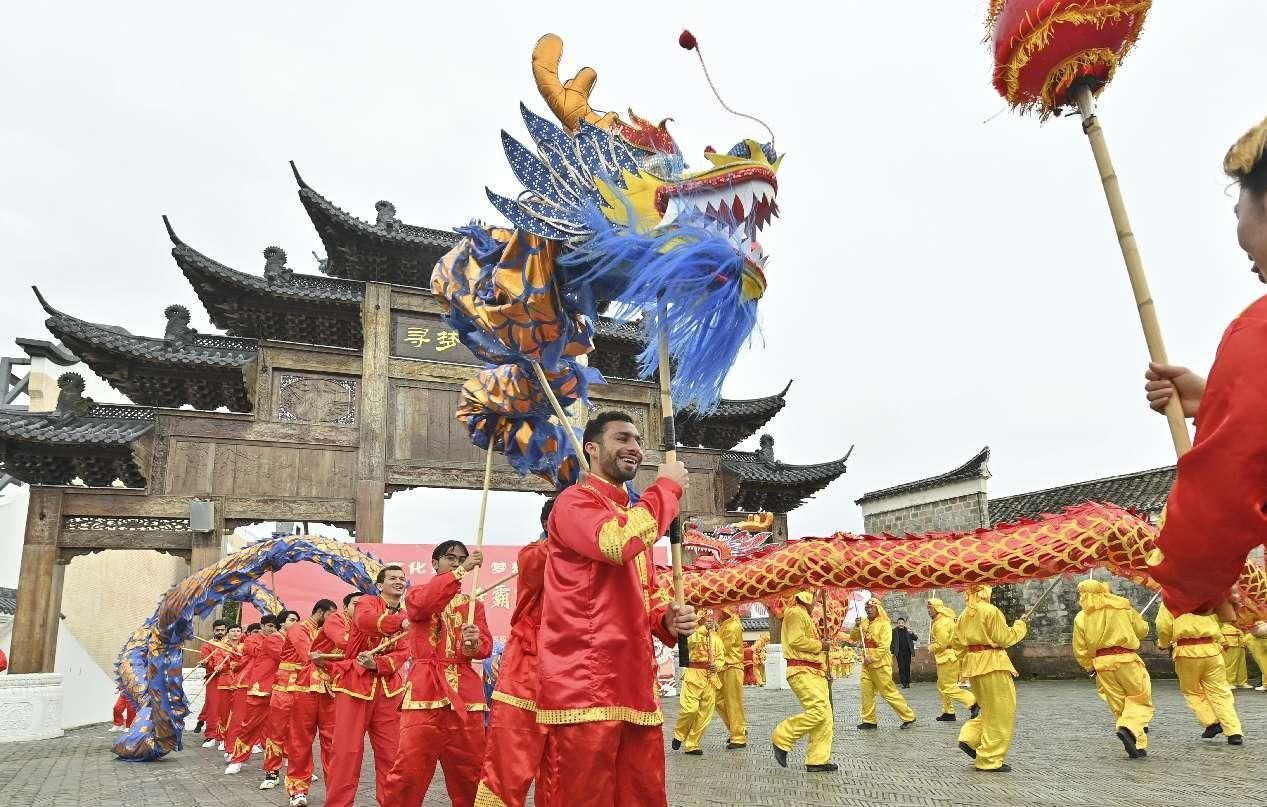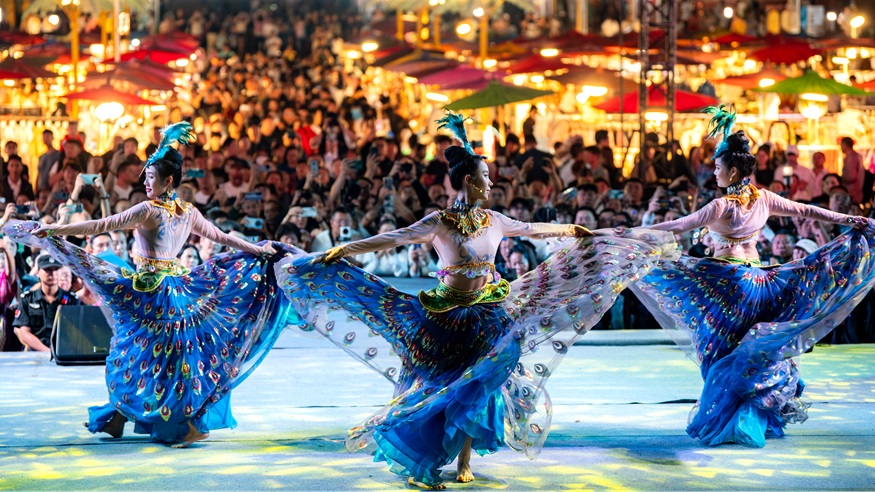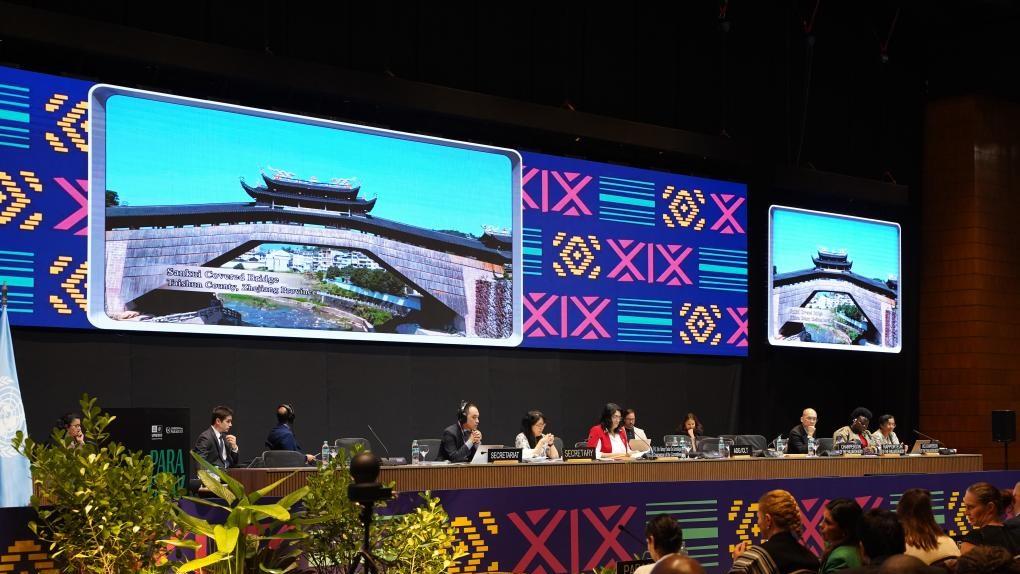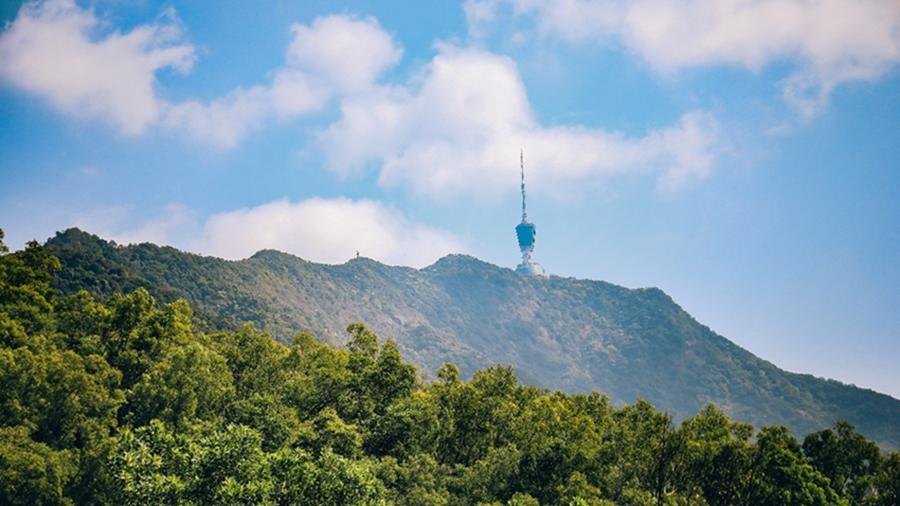UNESCO inscribes Spring Festival on intangible cultural heritage list, promoting exchanges and mutual learning among civilizations
On December 4, Spring Festival, social practices of the Chinese people in celebration of the traditional new year, was inscribed on the Representative List of the Intangible Cultural Heritage of Humanity by UNESCO.
The announcement was made during the 19th session of the UNESCO Intergovernmental Committee for the Safeguarding of the Intangible Cultural Heritage in Asuncion, Paraguay. At the session, vivid displays of cultural elements related to the Spring Festival, such as couplets, dragon dance, and Chinese knots, accompanied by melodies full of Spring Festival flavor, brought the festival's rich traditions to life.

International students from Nanchang University enjoy dragon dance during the Spring Festival in Wenchangli historical area, Fuzhou, east China's Jiangxi province, February 13, 2024. (People's Daily Online/Li Jie)
The successful inscription highlights the growing global appeal of traditional Chinese culture and the values embedded in Chinese civilization.
As Chinese President Xi Jinping pointed out, the Chinese New Year's Eve and Spring Festival are traditional festivals of the Chinese nation and days for families to reunite and ring in the Lunar New Year. He underscored the importance of this traditional festival in Chinese culture.
The Spring Festival represents the unique cultural and emotional DNA of the Chinese people. It is the most influential among all traditional Chinese festivals due to its profound cultural significance, rich customs, and widespread participation.
The festival plays an important role in maintaining and strengthening the emotional bonds between individuals, families, and the nation, while also promoting core values at the heart of Chinese civilization, such as peace, concord, and harmony. It stands as a powerful reminder of humanity's shared values, including family harmony, social inclusiveness, and the harmonious coexistence of humanity and nature, contributing greatly to the continuity of Chinese civilization.
The world's cultural and natural heritage is an important outcome of the development of human civilization and natural evolution, and an important vehicle for the exchanges and mutual learning among civilizations.
The Spring Festival embodies peace, amity and harmony which are values cherished by the Chinese nation and Chinese civilization, making it a festival that is meaningful for China and can be enjoyed by the world.
In 2023, China's Ministry of Culture and Tourism initiated the campaign to apply for UNESCO's recognition of the Spring Festival. In August of the same year, Spring Festival, social practices of the Chinese people in celebration of the traditional new year, became the only Chinese application for UNESCO's Representative List of the Intangible Cultural Heritage of Humanity in 2024.
The application includes a wide array of Spring Festival traditions across the country, such as pasting Spring Festival couplets, displaying New Year paintings, eating steamed bun with colorful patterns, and visiting temple fairs.
The recognition by UNESCO underscores China's commitment to strengthening the protection, preservation, and utilization of cultural and natural heritage. It has positive significance for the building of Chinese modernization that features material and cultural-ethical advancement, and adds new luster to world civilizations.

International teachers with Kang Chiao International School in Kunshan city, east China's Jiangsu province, learn to make dumplings with their families to celebrate the upcoming Spring Festival, February 7, 2024. (People's Daily Online/Yuan Xinyu)
Nancy Ovelar de Gorostiaga, Paraguay's permanent representative to UNESCO and chair of the meeting, congratulated China on the successful inscription. She said that China is the example that many countries should follow in order to try to safeguard their heritage, culture and traditions.
The successful inscription also represents a practical step in China's commitment to implementing the Global Civilization Initiative (GCI) and promoting exchanges and mutual learning among civilizations. It will substantially foster harmonious coexistence among civilizations and increase understanding and friendship among peoples.
Starting from 2024, the Spring Festival has been officially listed as a UN floating holiday in its calendar of conferences and meetings; it is a public holiday in almost 20 countries and celebrated in various ways by about one-fifth of humanity.
Besides, Happy Spring Festival activities and other cultural events hosted by China to celebrate the festival have reached nearly 200 countries and regions. UN Secretary-General has extended Spring Festival greetings on many occasions, and dignitaries of many countries have joined Spring Festival celebrations.
This traditional Chinese festival has become a widely accepted, recognized, and appreciated symbol of Chinese culture. People across the world share the joy and festive vibe while experiencing the vibrancy and inclusiveness of Chinese culture during Spring Festival celebrations.
UNESCO's recognition will help more people worldwide learn about the festival and the values it embodies, building a bridge for exchanges and mutual learning among different civilizations.
Cultural heritage is a global treasure that belongs to all of humanity. China will take the successful inclusion of the Spring Festival on the UNESCO list as a new starting point to better protect and carry forward the cultural values and essence inherent in the Spring Festival. In this way, the Chinese civilization, together with the rich and colorful civilizations created by the peoples of other countries, will provide humanity with the right cultural guidance and strong motivation.
Photos
Related Stories
- Spring Festival -- from traditional Chinese festival to world intangible heritage
- China hopes Spring Festival be moment of joyfulness shared by all: spokesperson
- Addition to UNESCO Heritage List shows growing popularity of Spring Festival
- UNESCO recognizes festival's promotion of harmony
- UNESCO inscribes Spring Festival on intangible cultural heritage list
Copyright © 2024 People's Daily Online. All Rights Reserved.









